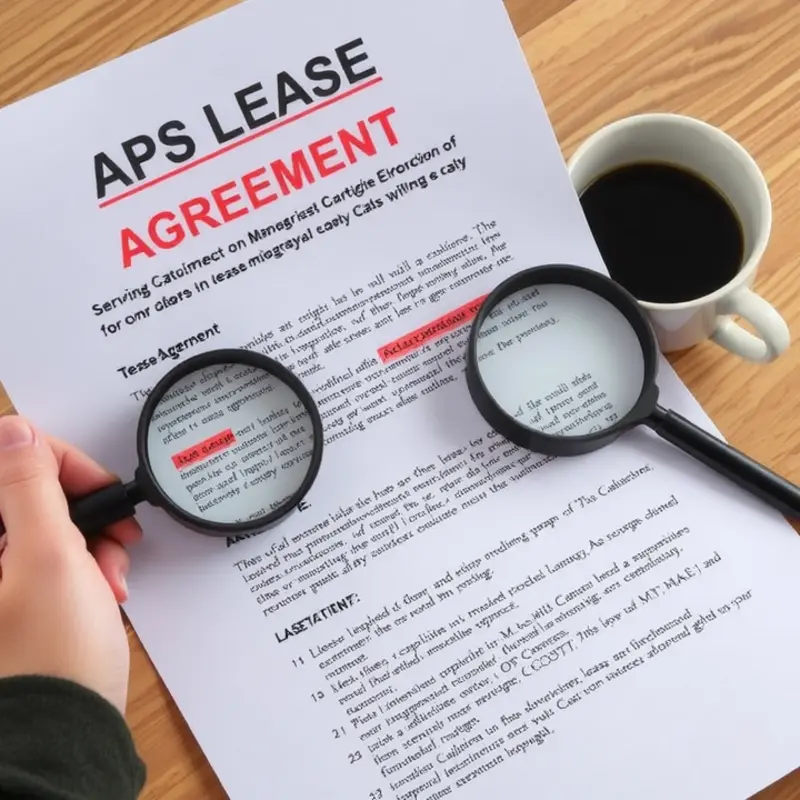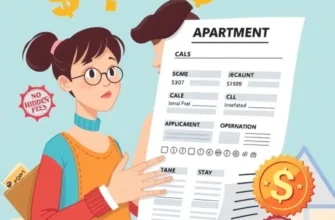Renting your first home can feel like swimming in a sea of paperwork, rules, and ‘No Pets’ signs. Whether you’re a young professional carving out your independence, a couple seeking your cozy nest, or a family looking for just the right space, understanding your renters’ rights is key to avoiding any fishing nets of confusion! Knowing what your landlord can and cannot do liberates you—and let’s be honest, who doesn’t want to send packing any sneakily imposed late fees? With this guide, you’ll navigate the rent waters like a pro, ensuring you don’t just survive, but thrive as you set down those roots. So grab a snack, settle in, and let’s dive into the essential rights every renter should know. Trust us, your future self will thank you.
Know Your Basic Rights: The Essential Playbook

Navigating the rental landscape? It’s crucial to understand your basic rights as a tenant. Equipped with knowledge, you’re not just moving into a new space; you’re asserting your rights to habitable living, security deposit protocols, and maintenance accountability. Let’s dive into these essentials, peppered with insights and tips for a harmonious landlord relationship.
As a renter, your first and foremost right is to a habitable living space. Imagine discovering a leaky roof only when it starts raining indoors. Not exactly the welcome you envisioned! Legally, landlords must ensure basic living standards are met. You are entitled to a dwelling free from significant leaks, mold, pest infestations, and faulty utilities. If your apartment falls short, notify your landlord in writing, outlining the issues clearly. This documentation is vital should the problem escalate.
Next, let’s demystify the security deposit. This upfront payment acts as a financial buffer for landlords but it’s not a free-for-all. Many states dictate specific rules surrounding how these deposits can be used and mandate their return, often within a stipulated period post-move-out. Check the legislation in your locality; many protect tenants by requiring landlords to provide receipts. For detailed state laws, check out the renter protection laws. To better secure your deposit’s return, remember this: leave the place as you found it—or better. A comprehensive checklist and thorough cleaning before departure often do wonders.
Need to request maintenance? Approach it like ordering at a café: be polite but clear about your order. Legally, landlords must perform necessary repairs within a reasonable timeframe. Give them a chance to correct issues, but if delays follow, escalate with a formal “Notice to Repair”. This isn’t about being combative; it’s about ensuring a livable space.
While building a cooperative relationship with your landlord can smooth over many troubles, remember: humor is your best ally. Imagine requesting repairs with a friendly, “I love that this apartment comes with local wildlife, but I’m more of an indoorsy type.” Injecting a touch of levity can diffuse tensions, making landlords more receptive.
When boundaries blur or rights are overlooked, don’t hesitate to seek external advice. Local tenant rights organizations and legal aid services are invaluable resources. They can offer professional guidance to ensure you’re both informed and supported.
In renting, empower yourself with this playbook of rights. Not only will it foster a secure and pleasant living experience, but it also sets the stage for a respectful landlord-tenist relationship. Handle your rights with care and wit—it’s the best tenant superpower there is.
Navigating the Fine Print: What to Look Out For

When embarking on your rental journey, the lease agreement becomes your roadmap, filled with details that can both empower and bind you. Delve into this document as you would any mystery, unraveling each clause with a keen eye. Understanding your lease is crucial, as it outlines your rights and responsibilities.
Identify Key Terms and Clauses
Start by identifying key terms like lease duration, rent amount, and payment methods. Pay special attention to clauses about rent increases. Some leases specify potential increments after a set period, and understanding these can save you unpleasant surprises later. For deeper insights into managing rent hikes, handling rent increases offers valuable guidance.
Rights and Responsibilities
Look closely at the sections detailing tenant and landlord responsibilities. Understand who handles repairs and maintenance. Leases usually specify whether tenants are responsible for minor fixes, while the landlord handles major repairs. Ensure you’re aware of any obligations for maintaining appliances, plumbing, or electrical systems.
Flexibility and Restrictions
Consider the flexibility your lease offers. Does it permit subletting, or are pets allowed? If you own a pet or plan to adopt one, these details are vital. Violation of pet policies can lead to fines or eviction. Some agreements might require that changes to the interior be reversible, as in the case of removable cabinet covers or any decor styles that may alter the rental’s appearance.
Negotiation Points
Don’t shy away from negotiating lease terms. Discuss any clauses that feel restrictive or unnecessary before signing. You may successfully negotiate for fewer restrictions on decorating or improvements, potentially transforming your space into a more personalized home. Additionally, you might secure a better rate or favorable terms by showcasing your reliability as a tenant.
Uncovering Hidden Gems
Sometimes, beneath the standard legalese, leases contain provisions that can enhance your lifestyle. For instance, some agreements permit gardening in designated areas, giving you the opportunity to explore apartment-friendly gardening. Know what you can do to make your rental experience enjoyable and personalized.
Avoiding Pitfalls
Common pitfalls include ignoring the fine print and failing to document the property’s condition. Upon moving in, thoroughly inspect your rental and record any existing damage. This documentation can protect you during your tenure. Moreover, missing deadlines for lease renewal notices or not understanding penalties for breaking your lease early can result in unwanted fees. Address these areas to avoid regrettable situations.
In conclusion, treat your lease as both a guide and a contract. Let it inform your every action within your new abode, ensuring you remain compliant while enjoying your space to the fullest. Understanding its nuances today will enable a smoother, more enjoyable renting journey tomorrow.
Final words
Armed with the insights from this guide, you’re ready to step into your rental journey with confidence and a smile on your face. Remember: knowledge is power! Understanding your rights not only protects you but also helps foster a better relationship with your landlord. So go ahead, enjoy finding your dream place, and don’t hesitate to assert your rights when needed. After all, you deserve a comfortable and happy home. Happy renting!









